Even though my online 'handle' is Mr Rolex, I have always had a soft spot for Omegas; two versions in particular, the 30mm movement (of which I have around a dozen) and the Speedmaster (of which I own a similar number). There has always been one version I have lusted after for more than 2 decades, the 'Alaska Project'.
In the early 1970s, Omega made around 20 prototypes, sent most of them to NASA for testing & kept three or four so that if NASA accepted the new design, they would have models to work from. Then after NASA showed no interest in the project, they remained in Omega's own collection (at this time, in the early 1970s there was no actual museum).
Then, a decade later, two things happened, Omega decided to put together a complete collection & and in Japan, Kesaharu Imai decided to write the first book on the history of the Speedmaster.
During the writing of the book, he went to Bienne and met with the nice folks there, took a ton of photographs of their watches and showed them the images he had already taken of his own collection (probably the best in the world). The Omega folks were astonished to see that Mr. Imai had not one, but two examples of the Mk1 Speedmaster, the 2915. They were astonished because they didn't even have ONE, they tried to buy one from him but he had no interest in the money; so they asked him if he was interested in a trade. He took one of the original Alaska Project watches and the Swiss got a nice 2915.
And three years later when I was in Tokyo working with Mr. Imai on a book for the Japanese market, I was granted the extraordinary privilege of handling his collection, and that is how I first encountered the Alaska Project, by holding, admiring and wearing one of the originals. He gave me a copy of his book on the Speedmaster, where this image kept me awake at nights.
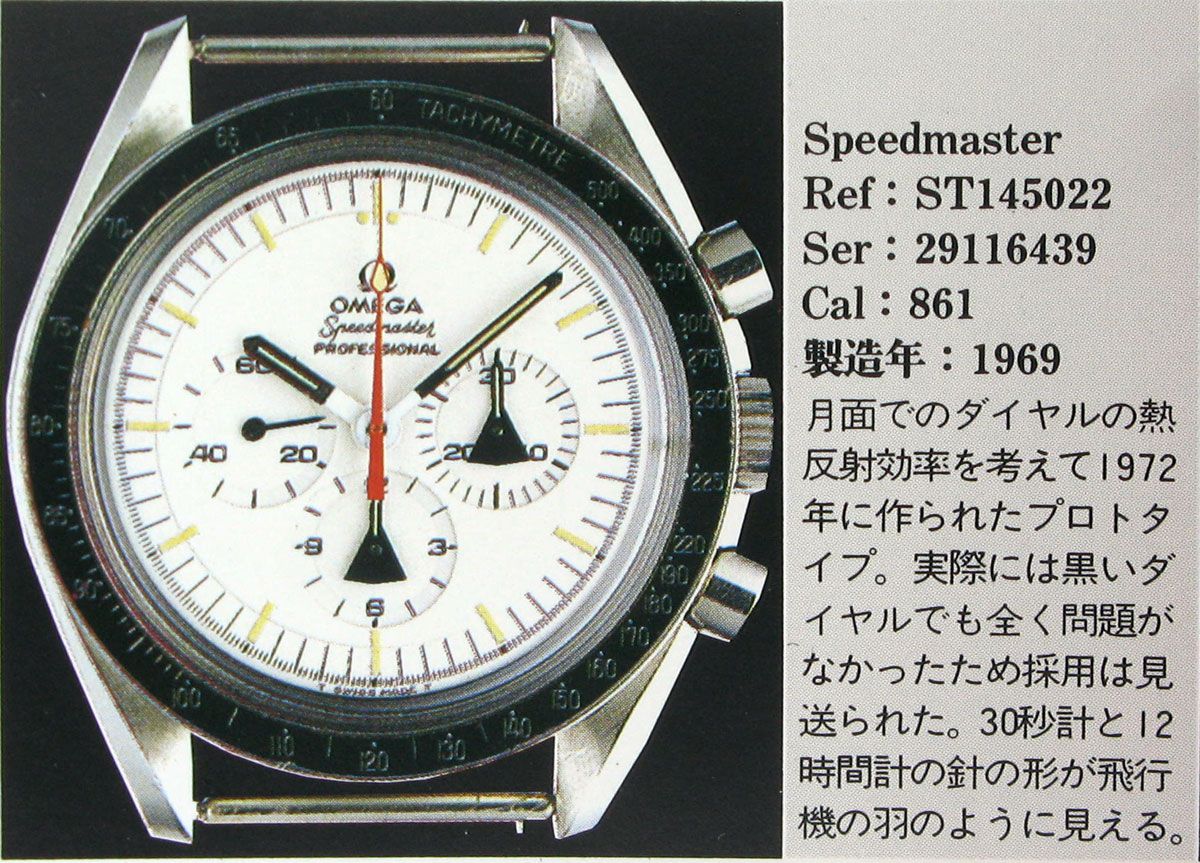
Then, a little less than two years ago, I got my copy of the Omegamania catlaogue, I was amazed to see one of the originals there, lot 211.

Interestingly the serial numbers were close together & they looked identical & the provenance was listed as 'The Omega Museum'; so I was pretty sure it was a real one. I knew I was going to buy it and I began to arrange my budget. I have attended too many auctions to be casual about them; so I ALWAYS set myself a budget, and in this case I chose twice the bottom estimate of 25,000 CHF and prepared myself to go to 50,000.
There was feverish bidding on it & I found myself 'outflanked' on the bidding; I had my hand up, but the auctioneer didn't acknowledge me until the bid was at 45,000 CHF, meaning the next one was 50k (or my limit); the 50k bid was duly made by someone else and before the auctioneer could even look at me, another bidder took the 55k bid. The auctioneer looked at me offering me the chance to bid 60k; but I shook my head & the hammer dropped at 55,000CHF; with the premium this was almost 65,000CHF (or around $54,000US). I silently cursed & went back to my catalogue.
Then, a year later, the pain was slightly assuaged when at Basel 2008, Omega announced a replica of the Alaska watch. On my return to the UK after the shows, I dropped into the London Omega boutique & ordered mine, and in a few months it was on my wrist.
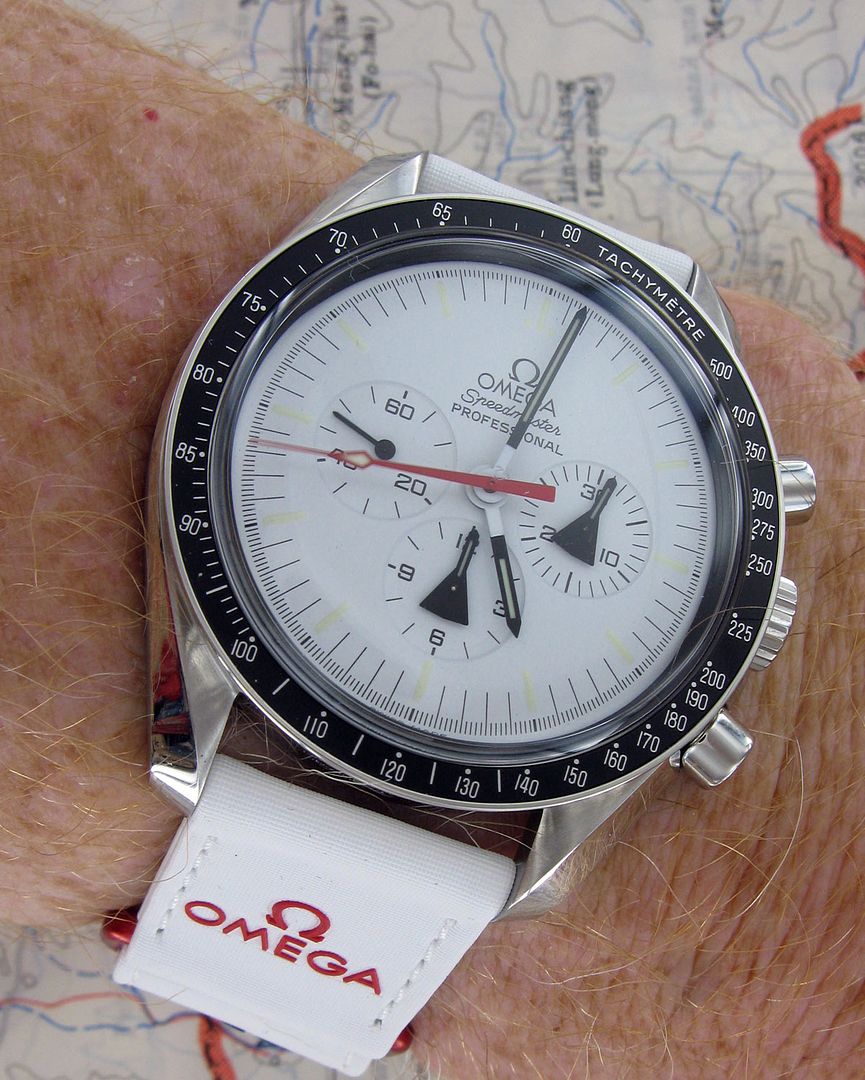
The problem was that I also had the high definition images from the catalogue:
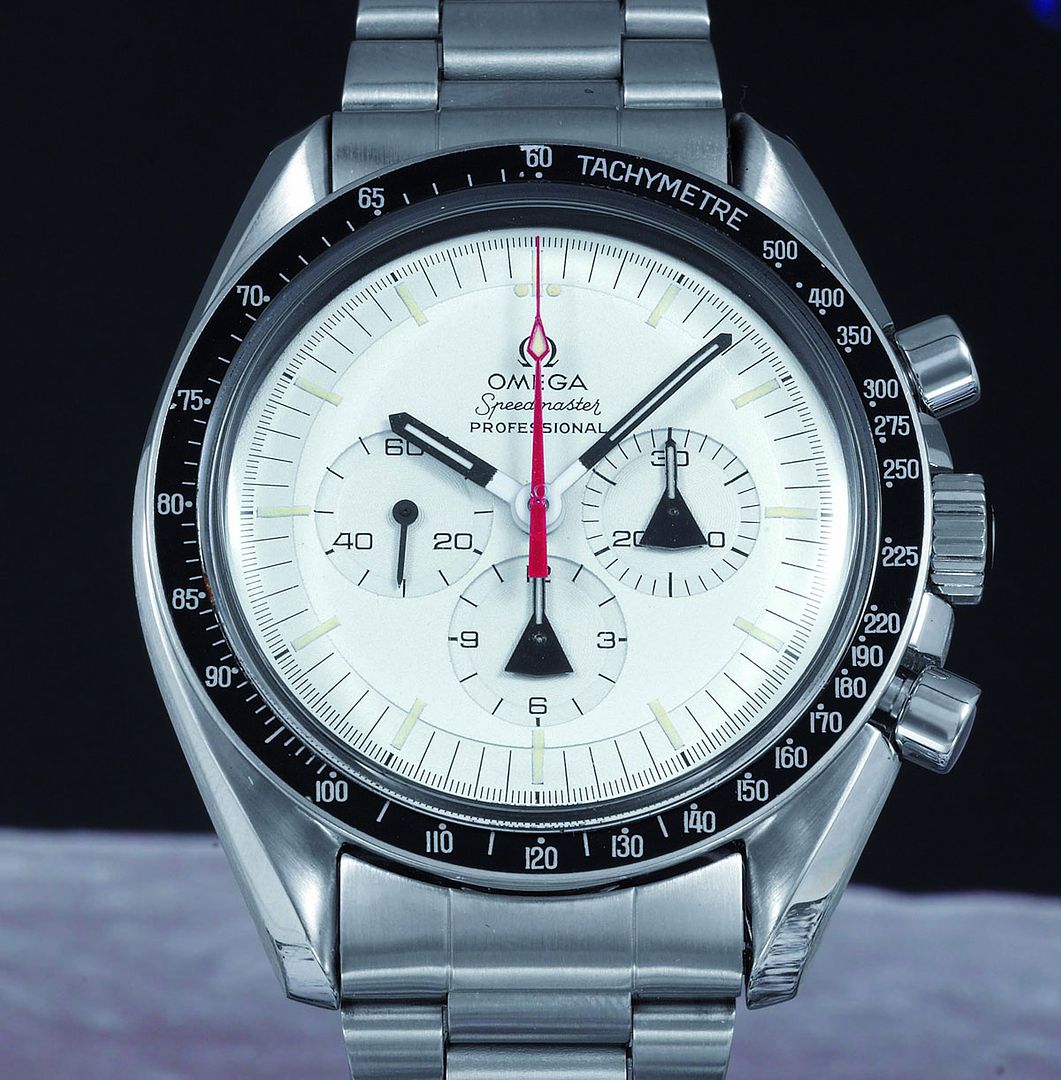
and the much better images from the English language version of Mr. Imai's book, which were much more legible than the Japanese one & I could really see the differences.
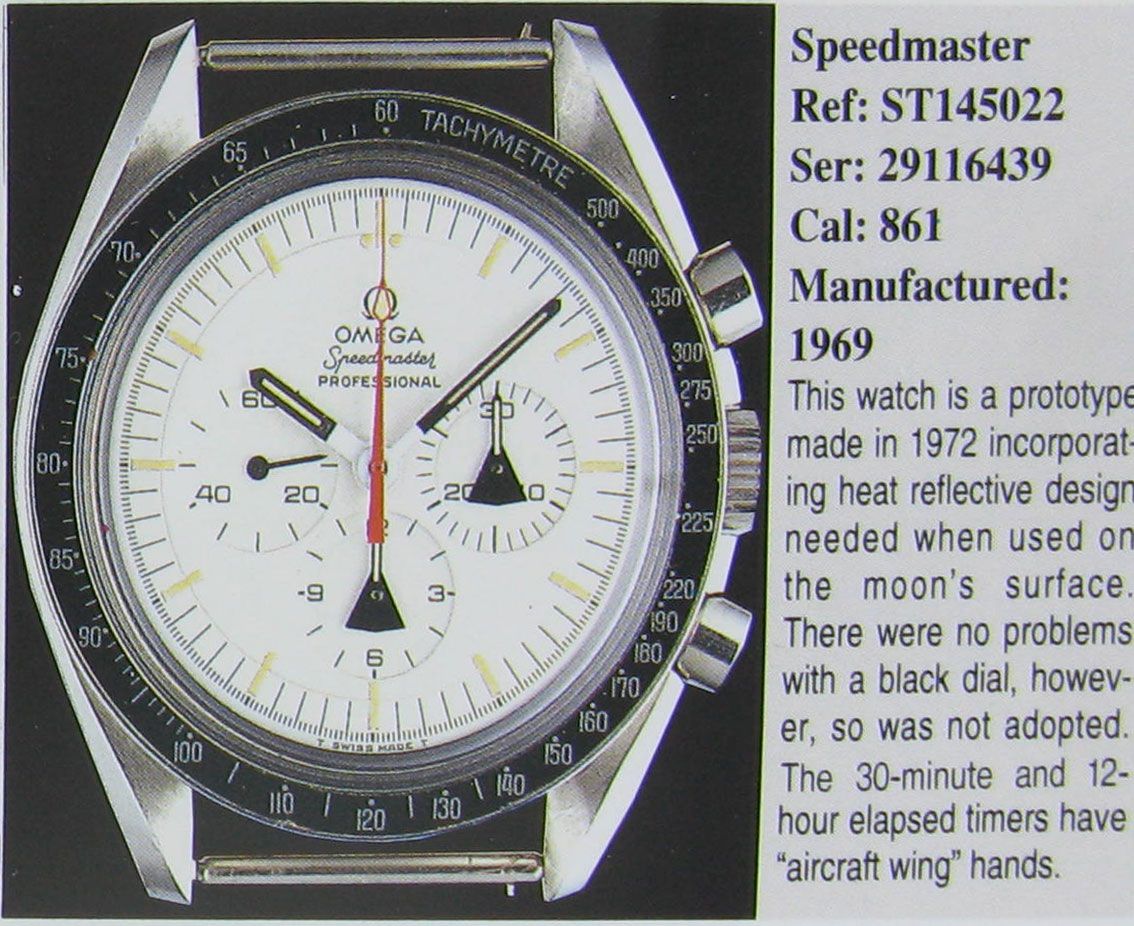
The original has a 'T Swiss Made T' dial and no accent on the first E in 'Tachymetre' and the word was in a completely different font; and even worse, the minute hands on the replica reached all the way to the outer seconds track, whilst the original one didn't.
I thought I had found my grail, rather what I had found was a stone in my shoe; every time I looked at it, it reminded me of what I had so nearly owned and I cursed myself for being so 'cheap'.
Then, towards the end of last year I discovered that the Omegamania watch might be available, this time I wasn't going to let it get away, and it didn't.
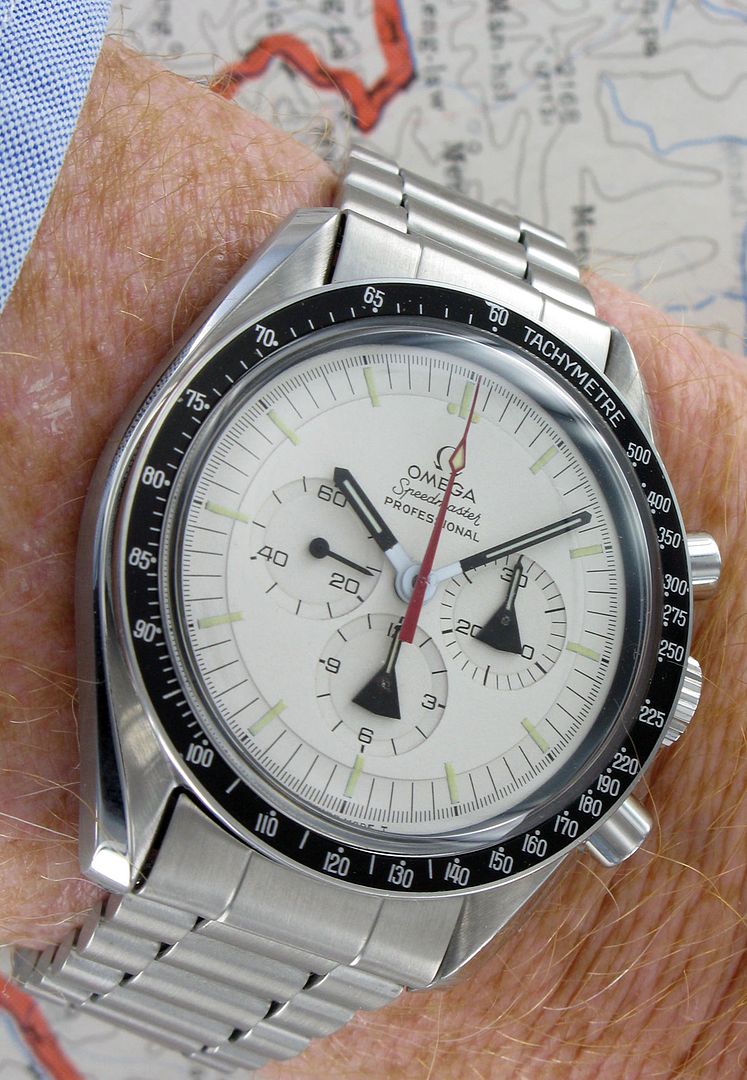
Despite the minor differences I mentioned above, the biggest difference is in the protective elodised aluminium outer case, here is the replica one:
Don't ever accuse Rolex of putting too much text on a watch ever again, this one even had writing on the back. Whilst the original is simply utilitarian.
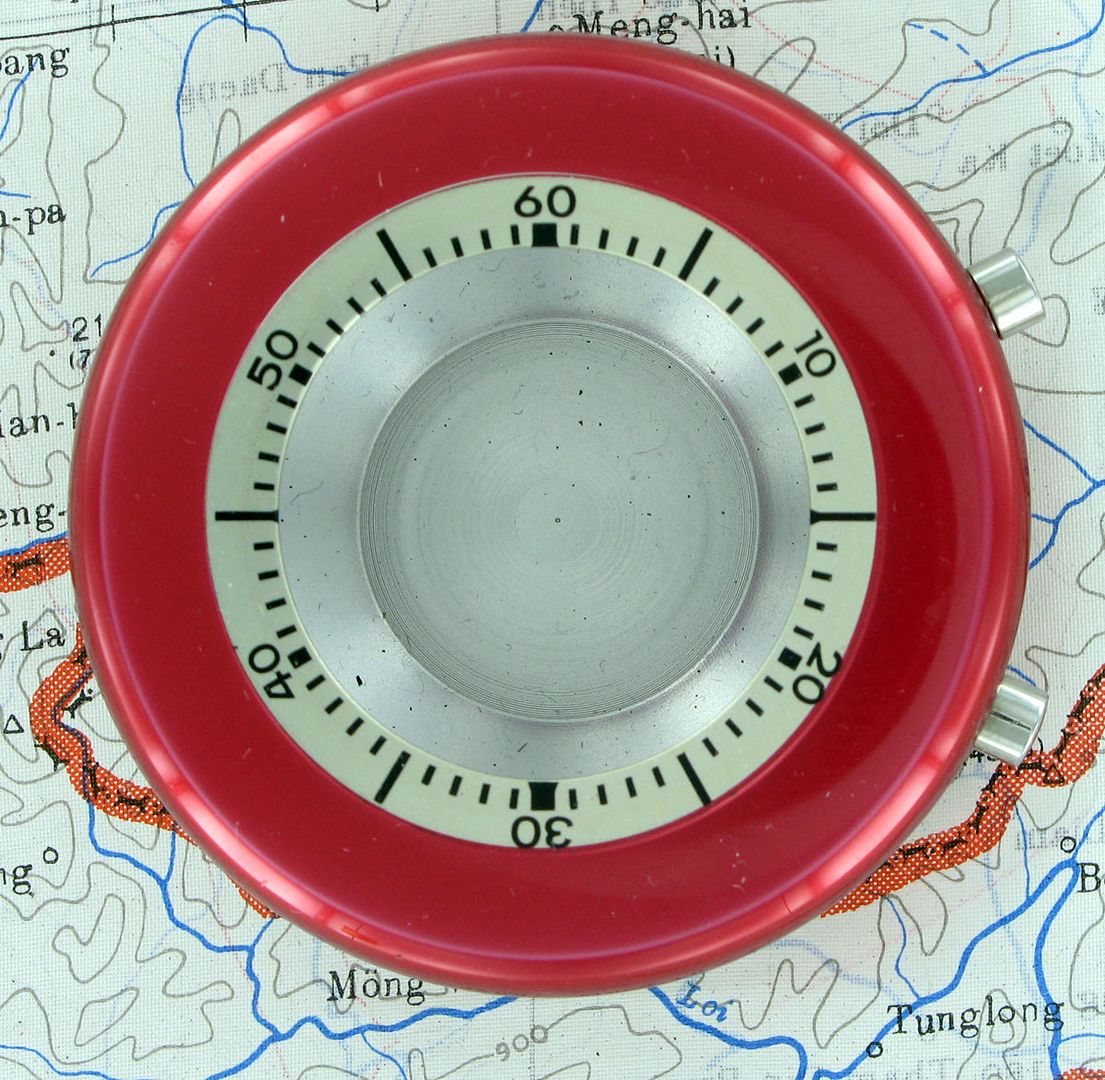
I love the writing on the back of the outer case, classic museum exhibit markings, done in an indelible marker on a non visible surface of an exhibit (I know this because I am a consultant to the British Museum on wristwatches).
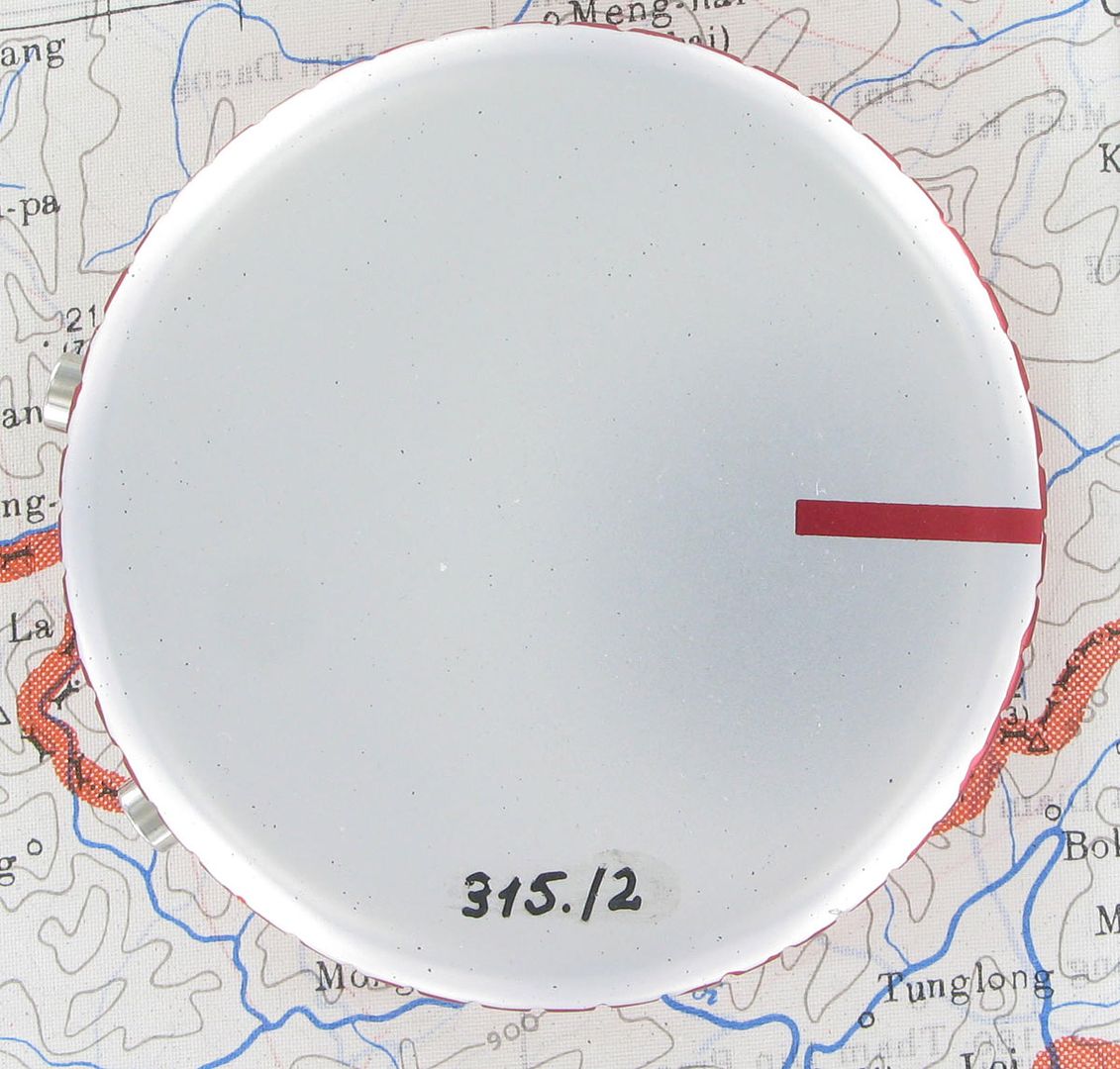
As I get older, the more I realise that the stuff my mother told me when I was young and I automatically ignored, is true. Getting something is so much sweeter when you have had to wait for it; for this one I have waited almost 25 years. My Omega sources tell me that there were only 3 of these prototype watches NOT sent to NASA for testing; One is in the Omega museum, one is in Mr. Imai's collection & the other is on my wrist as I type this.
If you have managed to get to the end of this, thank you for reading.